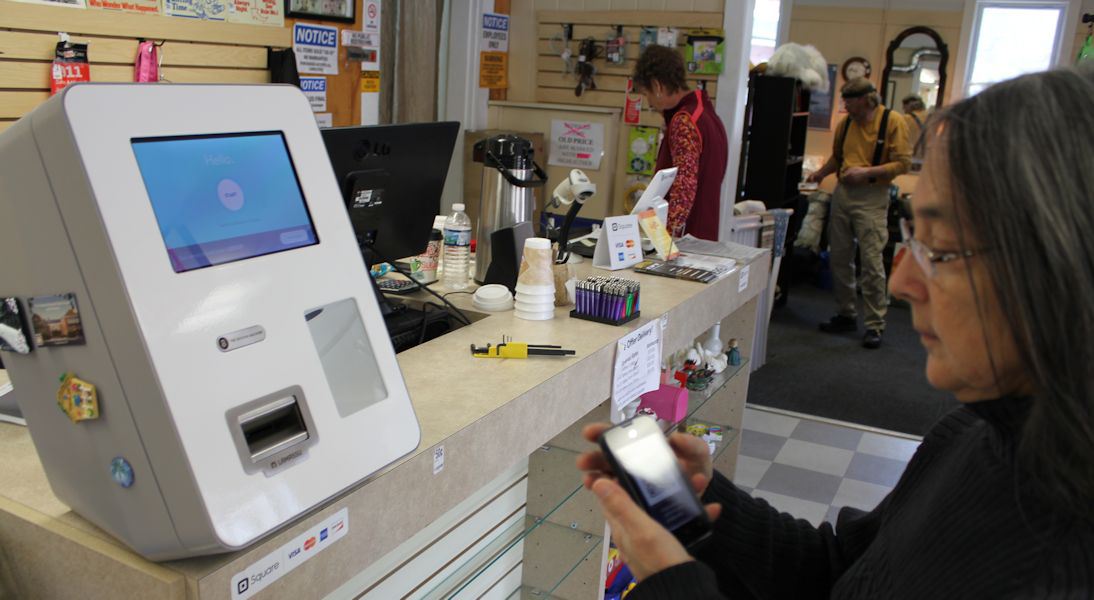New Hampshire is one of the most bitcoin-happy states in the country on a per capita basis, thanks largely to the libertarian, all-government-is-bad group called the Free State Project. The group (seduced, like so many have been, by our “Live Free or Die” state motto) created the much-publicized goal of luring 20,000 “like-minded” folks to New Hampshire and using them to remake the state government. It’s having an effect; if nothing else, two of our 400 state representatives now list themselves as Libertarians rather than Republicans or Democrats.
Like many libertarian fans, the Free Staters love crypto-currencies like bitcoin because they present the possibility of having an economy without nasty things like taxes and regulation. So they are very excited that a bill has been passed which prevents the state Banking Commission from regulation bitcoin currency traders. You can read a celebratory report from one of their main online publications, called Free Keene after the city where many of them live, right here. (This isn’t an official publication of the Free State Project, which is deliberately amorphous, but it’s a good reflection of the thinking of many members.)
The banking regulators say that because currency traders handle other people’s bitcoin transactions, including when bitcoin is converted to and from dollars, they should be controlled just like other companies that hold your money, such as Western Union for money transfers. The commission did not want to regulate direct purchases of items made with bitcoin or other virtual currencies. Without regulation, they argued, people who lose money if a bitcoin exchange suddenly went under would be out of luck.
Bitcoin fans hated this argument, saying it would kill the bitcoin ecosystem before it got going. They noted,that Poloniex, a startup bitcoin exchange firm, pulled out of New Hampshire because of it. (It later paid an $891 fine for operating without authority and never applied for a license.) Three other bitcoin exchange companies have registered with the state banking commission – although they also handle real-world currencies and thus had to register.
Lawmakers and Gov. Sununu apparently decided to err, if that’s the right word, on the side of encouraging a new technology and industry. We’ll see what happens.


 Return to the Concord Monitor
Return to the Concord Monitor
“Without regulation, the [sic] argued, people who lose money if a bitcoin exchange suddenly went under would be out of luck.”
It’s funny how government regulators (and their backers) always seem to forget that industries can be both government regulated and customer regulated, and assume that if an industry is customer regulated it’s unregulated. You would think people in a banking department would have a stronger background in economics (assuming honesty on their part).
I am *very* thankful that in the early days of the Internet some NH government agency didn’t decide to regulate Amazon and eBay, because, y’know, people could get ripped off there. Those companies’ dynamic customer-centric ratings and feedback systems are *far* more valuable than any government enforcement upon eBay or Amazon sellers could ever have been. Amazon and eBay would have simply closed their doors to NH residents, the same way cryptocurrency exchanges did, had such regulations come to pass. That would have been incredibly damaging for the population as a whole, even though I’m sure somebody in NH has been ripped off on occasion.
Full disclosure: I testified against the original bill that enacted the regulation. That bill, as written, even gave the Banking Department the power to regulate WoW Gold. I told the Senate this, and the Banking people there objected, but the bill was the bill, even if they hadn’t fully considered it. FWIW, the Representative who introduced the bill, Laura Jones, was mislead by the Banking Department about what its impact would be and was quite unhappy about being used by them.
I’m delighted that NH will not be a second class state with respect to bitcoin.
I’m amazed that people still fall for “safety” when the nearly all legislation and regulation exists to limit competition. It has nothing to do with your personal safety/interests/etc.
Thinly disguised condescension/contempt noted, David. Counterpoint here: http://reason.com/blog/2017/06/13/new-hampshire-exempts-bitcoin-and-other